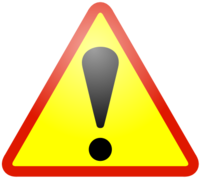Section One
1. Patient Background
1.1 Prior Medical History
1.1.1
Prior to traveling to Japan, for his 5th time, in May 1999 Wayne was fit healthy and well (refer Dr. Barry ter Haar letter dated 19/10/06).
Top of Page
1.2 Patient Profile
1.2.1
When Wayne presented to our service, with the exception of Wayne’s use of Cannabis (as noted in point 1.2.3), use of Nicotine and alcohol (as noted in point 1.2.4) the only history of note with Wayne regarding substance use was the Benzodiazepine regime that he was initially prescribed by Dr. X in 2000.
1.2.2
On detailed questioning by both me and the Detox Nurse, who interviewed Wayne, he had no prior history of hallucinogen use, no history of opiate use, no history of solvent use, no history of stimulant use and had abstained from alcohol since May 2000.
1.2.3
Wayne does acknowledge that he used cannabis between ages of 15 and 21 but has had no cannabis since the age of 21. Wayne reported that he smoked about 1 marijuana cigarette between about 5 people at parties.
1.2.4
Other history included smoking cigarettes, as a minor, and the occasional drinking of alcohol. Wayne reported that he “played with cigarettes a couple of times” as a nine year old without actually inhaling anything. Then he smoked regularly between the ages of 14 and 17, but only about 5 per day. He has not smoked at all since then. Regarding alcohol, Wayne reports that he drank about 4 (less than six standard drinks) glasses of beer occasionally on a social basis at parties. This pattern of alcohol use is well within the recommended safe New Zealand drinking guidelines of no more than 6 standard drinks on any one occasion and no more than 21 standard drinks per week.
1.2.5
Wayne’s history did not suggest that he had an addictive personality.
1.2.6
This is further evident in the fact that Wayne was particularly keen to withdraw from his Benzodiazepine regime upon learning of their addictive nature and the fact that they were likely contributing to some of his underlying symptoms at the time.
1.2.7
Furthermore, Wayne made 3 attempts, although unsuccessful, to reduce his drug intake during the course of the drug treatment that he was being prescribed (1st attempt at end November 2000, 2nd attempt at beginning of March 2001, 3rd attempt at end of March 2001).
Top of Page
1.3 Substance / Prescription History
NB: The substance use history between 5th July 2000 and 9th April 2001 is based on information provided to me by Wayne and his lawyer, Mr. A.
Below is a breakdown for the Benzodiazepine component of the prescriptions.
|
Prescribing Doctor (Hospital) |
Period | Prescription Drugs |
Dose (mg) |
|
| Trade Name | Chemical Name | |||
| Defendant – Dr. X (SK Clinic) | 5/7/00 ~ 23/1/01 | Contol | Chlordiazepoxide | 15 |
| Rivotril | Clonazepam | 0.9 | ||
| Grandaxin | Tofisopam | 150 | ||
| Dr. M (O Medical Center) | 22/1/01 ~ 9/4/01 | Rivotril | Clonazepam | 1.2 |
| Constan | Alprazolam | 1.2 | ||
| Dr. Whitwell | 9/4/01 ~ 19/4/01 | Rivotril | Clonazepam | 1.0 ~ 0.5 |
| Dr. Judson | 19/4/01 ~ 5/5/01 | Rivotril | Clonazepam | 0.5 ~ 0.0 |
NB: The prescriptions between 9th April 2001 and 5th May 2001 were all prescribed by Dr. Whitwell. My role was to help Wayne with the reduction process.
On top of the Benzodiazepines (Chlordiazepoxide, Clonazepam, and Tofisopam) outlined above, Wayne was also prescribed the following drugs by Dr. X.
|
Prescribing Doctor (Hospital) |
Period | Drug Name |
Dose (mg) |
|
| Trade Name | Chemical Name | |||
| Defendant – Dr. X (SK Clinic) | 5/7/00 ~ 23/1/01 | Tofranil | Imipramine | 10 |
| Ketas | Ibudilist | 30 | ||
NB: I have been informed that the Benzodiazepines (Chlordiazepoxide, Clonazepam, and Tofisopam) prescribed by Dr. X were all mixed together in a powder form contained in sachets. The Imipramine was in tablet form and the Ibudilist was in capsule form. The dosages never changed.
Top of Page
Notice
Upon advice from my lawyer, Dr. Judson recorded the history of symptoms below using the same wording that appeared in my handwritten notes to the prescribing doctor and the patient files that they were contained in. The purpose was to remain consistent with the evidence.
1.4 History of Symptoms
NB: the details under 1.4 are based and copied from details provided to me in written form by Wayne.
Pre-Drug Treatment Symptoms
1.4.1
Wayne informs me that he experienced the below symptoms whilst working at a stressful job in Shizuoka. I can confirm that these symptoms are consistent with stress.
Around October 1999
- Sweaty palms
- Shortness of breath.
- Racing / scattered thoughts
- Sleep disturbances
- Pressure in temple areas
- Swelling of temporal veins
- Fatigue / lethargy
1.4.2
Wayne reports that most of the above subsequently disappeared after changing jobs at the end of March 2000.
1.4.3
Wayne reported the below symptoms following an acute vertigo attack.
11th May 2000
- A single attack of rotational vertigo
- Vomiting / Nausea
- Flushes
- Initially unable to stand
- Difficulty walking for a week thereafter
- Ongoing unsteadiness
- Subsequent anxiety over not knowing what was wrong
NB: I understand there are differing views as to what exactly caused the above symptoms.
1.4.4
Upon initial presentation, Wayne handed Dr. X a list of symptoms associated with his vertigo attack; including those above (1.4.3). As an additional part of this list Wayne wrote the following general history under the title “Other”.
“Early 1998 ~
- Stiffness in shoulders
NB: following this I (Wayne) began the habit of clicking my (his) neck
April 1999 ~
- Bad tooth (currently receiving treatment)
NB: Since late May, the toothache has caused inflammation in my (Wayne’s) cheek, eye pain and swelling of glands
June 1999 ~
- Became a bit lethargic
NB: Have been feeling lethargic since coming to Japan (due to difference in environment)
Early 2000 ~
- Shortness of breath
- Pain in the temple areas and swelling of the surrounding veins (these symptoms disappeared following dental treatment)
Late April ~ 11 May 2000 (time of vertigo attack)
- Very lethargic
- Fatigue
- Eyes feel like they are swimming around
Post-Drug Treatment Symptoms
1.4.5
Following about 2 weeks of Dr. X’s drug treatment Wayne reports that he noticed some initial settling of symptoms as below.
Mid ~ End July 2000
- Settling in dizziness
- Settling in anxiety levels
1.4.6
Following about 1.5 months of Dr. X’s drug treatment Wayne reported that he had; continuing symptoms, worsening symptoms and some new symptoms as well. Wayne made regular complaints of his new symptoms, both in written and verbal forms.
Mid ~ End August 2000
Continuing symptoms included (in Wayne’s words)
- Continuing staggering (especially feel queasy when washing dishes, taking shower)
- Lethargy and fatigue (still the same)
- Shortness of breath (little improvement)
- Eyes feeling like they’re swimming around (now, only at mornings)
- Legs feeling weak (they momentarily came right, but now can’t seem to get much strength into them)
- Feeling woozy
- Summer lethargy
- Stress & fatigue
- Stiff shoulders
Symptoms that worsened included
- Dizziness
- Feelings of anxiety
- Worsening levels of fatigue
- (Worsening of hemorrhoids)
New symptoms included
- Palpitations / Heart pounding
- Loss in appetite
- Mouth ulcers
- Chronic Thirstiness
- Reoccurring nausea
1.4.7
Following about 4 ~ 6 months of drug treatment Wayne states that his condition continued to deteriorate and that he developed several more new symptoms as below.
Between October and December 2000 (in Wayne’s words)
Additional new symptoms included
- Tinnitus - from November, started to experience light tinnitus (when trying to sleep and upon wakening)
- Vitreous opacities - Developed what appears to be a smear on the lens of eyes (In right eye, can be seen even after eye is closed) From October
- Became sensitive to heat (body temperature seems to change all the time)
- Pulse rate is higher than usual
- Flushes
- Loss in sexual interest
- Developed habit of always closing eyes
- Starting to feel detached
- Pressure in chest
- Occasional stomach pains
- Loss in appetite / Anorexia
- Jaw stiffness and pain
- Painful & stiff joints, muscles felt tight, heavy and numbed
- Lost more than 10 kilos in weight
- Inside of head twitches and pulsates
- Tightness across forehead and scalp
- Physical weakness
- Paresthesias
- Visual disturbances
- Increased sleep disturbances
- Slightly effected speech
- Hypersensitivity
- Sensitivity to sound and light
- Emotional Instability (including panic attacks, anxiety, depression, mood swings, aggression)
NB: Wayne also noticed at this stage that he was now suffering from feelings of emotional instability and panic attack-like episodes - something he had not experienced before. Apparently Wayne continued to complain of these new symptoms in both written and verbal forms.
1.4.8
I have been informed that Wayne changed to the O Medical Center, where he listed the following symptoms in his Patient Questionnaire Form.
21st January 2001
- Dizziness
- Staggering
- Shortness of breath
- Lethargy
- Fatigue
- Jelly leg sensation
- Muscular pain/stiffness in neck and back
- Nausea (periodic)
- Sparkling sensation in vision
- Appears to be marks on eye lenses
- Head seems to pulsate more than usual (especially when sleeping)
- Sensation of head rushes
- Deterioration in sense of balance
- Shoulder stiffness
- Pressure in sinus
- Have become prone to mouth ulcers
- Hemorrhoids
- Palm of hands sweat abnormally
Top of Page

The primary language of this website is English. Japanese appears as translations only (except for some original court documents).
These translations have been done by many different translators including me. Therefore, there are differences in quality and styles.
Please understand that I am not native Japanese and subsequently there are parts that may sound unnatural in Japanese.
“Benzos are responsible for more pain, unhappiness and damage than anything else in our society.”

Phil Woolas MP,
Deputy Leader of the House of Commons,
Oldham Chronicle, February 12, 2004
“The benzodiazepines are probably the most addictive drugs ever created and the vast army of enthusiastic doctors who prescribed these drugs by the tonne have created the world's largest drug addiction problem.”

The Drugs Myth, 1992
“If any drug over time is going to just rob you of your identity [leading to] long, long term disaster, it has to be benzodiazepines.”

Dr John Marsden,
Institute of Psychiatry, London
November 1, 2007
“To rely on the drug companies for unbiased evaluations of their products makes about as much sense as relying on beer companies to teach us about alcoholism.”

Marcia Angell MD
(Former) Executive Editor New England Journal of Medicine
“It is more difficult to withdraw people from benzodiazepines than it is from heroin.”

Professor Malcolm H Lader
Institute of Psychiatry London
BBC Radio 4, Face The Facts
March 16, 1999
“Withdrawal symptoms can last months or years in 15% of long-term users. In some people, chronic use has resulted in long-term, possibly permanent disability.”

Professor C Heather Ashton
DM, FRCP,
Good Housekeeping, 2003
“Clearly, the aim of all involved in this sorry affair is the provision of justice for the victims of tranquillisers.”

THE WRITING IS
ON THE WALL
for benzodiazepine use

Dr Andrew Byrne
Redfern NSW Australia
Benzodiazepine Dependence, 1997
The informed consent argument formed an integral part of the case because it was needed to prove negligence.

Without negligence there would have been no accountability, and therefore, no case from the outset.
In section 4 of his fourth report, Addictive Medicine Specialist, Dr. Graeme Judson explained the principles of prescribing and informed consent in relation to my case and sample applied.
The monitoring argument also formed an integral part of the case because it too was needed to prove negligence.

As above, without negligence there would have been no accountability, and therefore, no case from the outset.
As with informed consent, in section 4 of his fourth report, Addictive Medicine Specialist, Dr. Graeme Judson explained the principles of prescribing and monitoring in relation to my case and sample applied.









